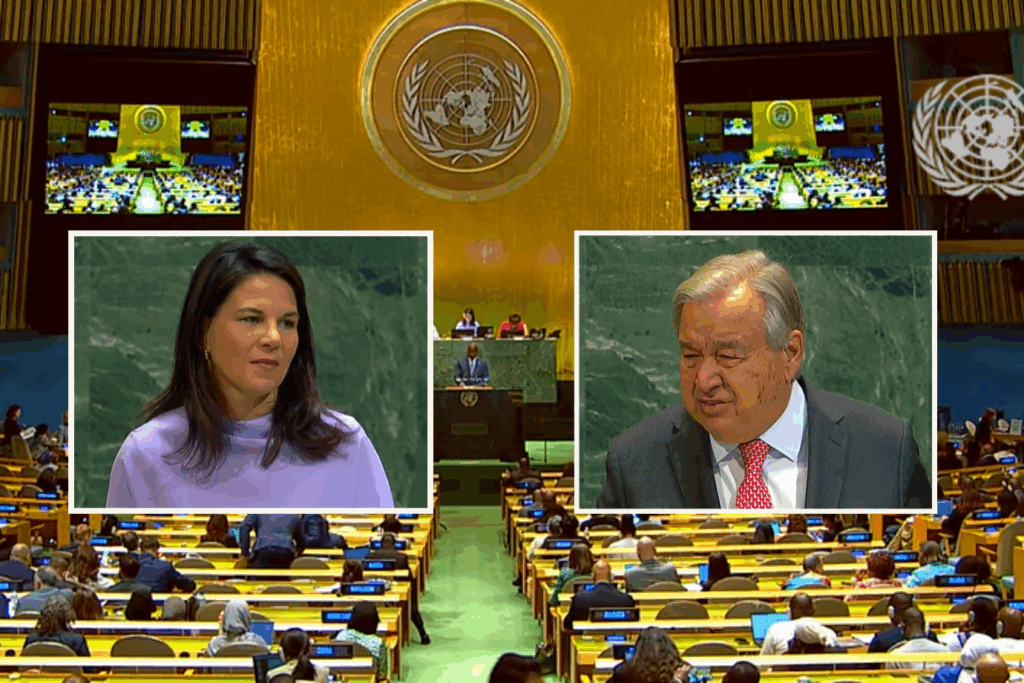Marking the 30th anniversary of the landmark Beijing Declaration on women’s rights, global leaders have warned that “hard-won gains” towards full gender equality “are now under attack”, amid conflicts, climate disasters and risks posed by artificial intelligence.
At the United Nations General Assembly in New York on Monday, UN Secretary-General António Guterres told delegates that while the 1995 Beijing Declaration and Platform for Action had been “the most ambitious global political commitment on women’s rights ever achieved”, progress has been “slow and uneven”.
Guterres highlighted the online “wave of misogyny” found in artificial intelligence that has been undermining women’s rights around the world. He said the AI industry has been “dominated by men, shaped by biased data and driven by algorithms that frequently reinforce discrimination”.
Urging investment in girls’ education in science and technology, Guterres said the industry must “serve equality, not exclusion”.
He also called for universal ratification of the Convention on the Elimination of All Forms of Discrimination Against Women and proactive steps to bring women into decision-making at all levels, emphasising that women’s participation in decision-making “is not a gift” but “a right”.
“Equal rights and opportunities for women and girls are not partisan issues. They are global imperatives – and the foundation of peace, prosperity and progress. The United Nations stands with them, and all leaders should do the same, by speaking out and doing everything possible to realise the vision of the Beijing Declaration”, said Guterres.
The President of the General Assembly, Annalena Baerbock backed these calls, saying women’s rights are “unfinished business”.
“We stand on the shoulders of giants, of women who paved the way forward for us. Today, we celebrate the courageous women who fought for every single phrase in the Beijing Declaration. The fight paid off, but 30 years later the revolution remains unfinished”, she said.
“When women are at the table, companies perform better, peace treaties last long and governments deliver more,” added Baerbock, who is only the fifth woman to preside over the UN General Assembly in its 80-year history.
She urged leaders to match gender equality rhetoric with actions and pointed to ongoing gender-based violence, inequalities in healthcare and political and religious restriction towards women’s bodies,
“Women’s rights are always human rights. They are our rights, our future,” Baerbock said.
In a move for faster progress, at the the beginning of UNGA80 High Level Week, 109 national governments made commitments to mobilise 212 national actions in support of the Beijing +30 Action Agenda.
It marks the strongest multilateral stand for women and girls in the past 30 years, with the event attended by 155 speakers.
UN Women Executive Director Sima Bahous told leaders that their “words today must be matched by courage tomorrow”.
“In the policies you pass, the budgets you allocate, and the change you drive together with and for women. These actions form a map of the possible, and we know what that possible can deliver when we come together. Because gender equality remains a unifying force for the world,” said Bahous.



